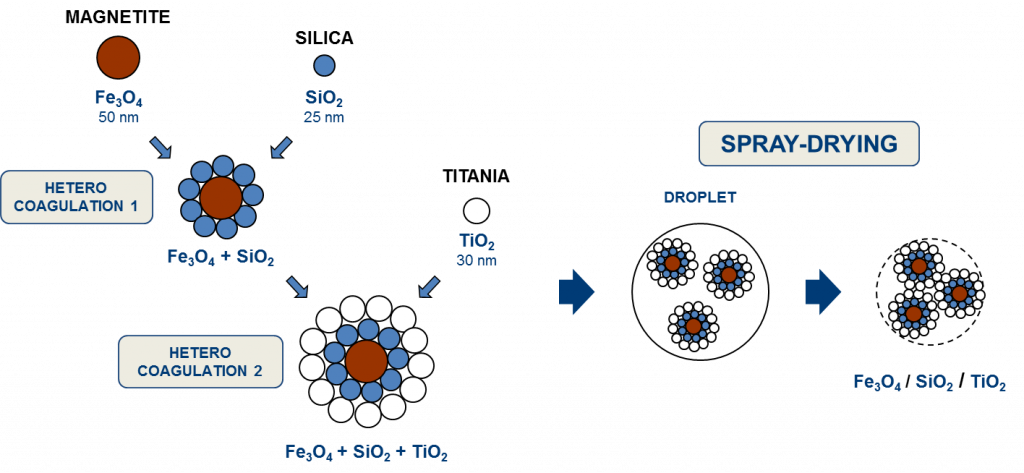Large interphase systems
Design and development of complex fluids
Principal Investigator: Davide Gardini
This research line is devoted to the study and the development of large interphase systems, with particular focus on liquid dispersions of nanometric and micrometric objects (nanostructured or not), typically metal oxide particles, metals, clay minerals or other ceramic materials. Being the size of the solids dispersed in the liquid phase very small, the surface area of such objects can be very high and therefore the phenomena occuring at the interface are those that, ultimately, govern the macroscopic behavior of such systems. Since often the behavior of these fluids differs from the simple Newtonian behavior we speak of complex fluids. They are involved in a large number of processes and applications of technological interest and from their properties depend on the processes efficiency and product quality.
We study such systems from the point of view of the physicochemical properties, colloidal stability (interparticle interactions) and rheological behavior in order to optimize their properties in relation to the applications they are intended for or to identify the causes of problems encountered during their application in industrial processes.The aim of the activity is to understand the existing correlations between the colloidal and rheological properties of the complex fluids, their composition and structure, and the study of how such properties can affect the application performances.
We characterize the dispersions by the measurement of properties that determine the colloidal behavior (mainly, particle size and zeta potential) and rheological properties (viscosity, yield stress, thixotropy, viscoelastic moduli) as well as other physicochemical properties (pH, electrical conductivity, density, surface tension, contact angle).
The studied systems can have different origins; they can be the result of the dispersion in a liquid phase of nano or micropowders, often in presence of suitable additives, or derive from chemical syntheses using sol-gel technique, to have commercial origin or to be industrial products under development.
In particular, we deal with:
- Ceramic suspensions for tape casting
- Screen printing inks for screen printing
- Ceramic digital inks for ink-jet printing
- Glazes for digital glazing
- Electrorheological fluids
Instruments
The main instruments used to characterize the complex fluids are the following:
- Rotational rheometer
- (Dynamic ed Electrophoretic) Light scattering
- Zeta potential electroacoustic probe
- Gravitational particle size analyzer
- Optical system for surface property measurements
- Conductimeter
- pH probe
